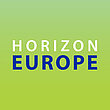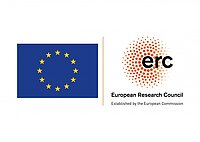Venue: Campus of the University of Vienna („Altes AKH“), festival tent in Hof 1
Position of the tent: https://goo.gl/maps/8FjYQNtdnaUiKCcs6
Free entry!
(deutsche Ankündigung siehe unten)
Under the impression of the increasingly noticeable man-made climate change, questions about a "green" transformation of the economy and society are becoming increasingly urgent. Some voices from the climate movement are calling for "system change not climate change", i.e. a radical system change away from a capitalist growth society. Others are critical of such "degrowth" models, not least because they imply sacrifices that would produce social losers. This raises general questions about the social implications of "green transformation" beyond technocratic notions of feasibility: how does such a transformation change our lives, on both a small and large scale? Can there be a socially just green transformation? Can it be carried out within the framework of existing political-economic conditions? In other words, how adaptable are the market economy and capitalism to the new requirements? And what could green transformation look like on a global scale?
In this third history and social sciences festival, high-ranking voices from science, politics, civil society, art and culture will examine these various dimensions of and debates on "green transformations". These lectures, debates and panel discussions will be accompanied by an attractive cultural program.
Grüne Transformationen
RECET-Festival der Geschichts- und Sozialwissenschaften
4.6.-6.6.24
Ort: Campus der Universität Wien („Altes AKH“), Festival-Zelt in Hof 1
Position des Zelts: https://goo.gl/maps/8FjYQNtdnaUiKCcs6
Eintritt frei!
Unter dem Eindruck des verstärkt wahrnehmbaren menschengemachten Klimawandels stellen sich Fragen nach einer „grünen“ Transformation von Wirtschaft und Gesellschaft mit zunehmender Dringlichkeit. Manche Stimmen aus der Klimabewegung fordern „system change not climate change“, also einen radikalen Systemwechsel weg von einer kapitalistischen Wachstumsgesellschaft. Andere sehen solche „Degrowth“-Modelle kritisch, nicht zuletzt, weil sie einen Verzicht implizieren, der gesellschaftliche Verlierer produzieren würde. Daraus ergeben sich allgemeine Fragen der sozialen Implikationen von „grüner Transformation“ jenseits technokratischer Machbarkeitsvorstellungen: Wie verändert eine solche Transformation unser Leben, im Kleinen wie im Großen? Kann es eine sozial gerechte grüne Transformation geben? Kann sie im Rahmen bestehender politökonomischer Verhältnisse vollzogen werden? Mit anderen Worten, wie anpassungsfähig sind Marktwirtschaft und Kapitalismus an die neuen Anforderungen? Und wie könnte grüne Transformation auf einer globalen Ebene aussehen?
In diesem dritten Festival der Geschichts- und Sozialwissenschaften werden sich hochrangige Stimmen aus Wissenschaft, Politik, Zivilgesellschaft, Kunst und Kultur mit diesen verschiedenen Dimensionen von und Debatten über „grüne Transformationen“ auseinandersetzen. Begleitet werden diese Vorträge, Streitgespräche und Podiumsdiskussionen von einem attraktiven Kulturprogramm.
Program/Programm
Tuesday 4 June // Dienstag, 4. Juni
14:30: Opening with Christina Lutter (Dean of the Faculty of Historical and Cultural Studies, Univeristy of Vienna), Philipp Ther (RECET) and Jannis Panagiotidis (RECET)
15:00: Sustaining the Desire for the Social: Challenging Environmental Violence through Art-Activist Practices in Bosnia and Herzegovina
Keynote lecture by Damir Arsenijevic (University of Tuzla), moderated by Misha Glenny (IWM Vienna)
17:00: Cities & Climate: Rethink, Revolutionize, Survive
Roundtable discussion with Nina Abrahamczik (City of Vienna), Janet Sanz (Barcelona en Comú), Yvonne Franz (Department of Geography and Regional Research, University of Vienna), Michał Czepkiewicz (University of Warsaw/Adam Mickiewicz University in Poznań), moderated by Agata Zysiak (RECET)
19:00: Introduction of the accompanying art exhibition by Damir Arsenijevic (University of Tuzla)
19:30: Welcoming remarks by Vice Rector of Research and International Affairs Manuela Baccarini, followed by a public reception with live music by Pallawatsch
Wednesday 5 June // Mittwoch, 5. Juni
13:00: Protect, Transform, Question? Feminist Political Thought and Environmentalism in Long-Term Perspective
Roundtable discussion with Julia Sachseder (CEU Vienna), Anna Seidel (Humboldt University Berlin), Renata Hryciuk (Institute of Ethnology and Cultural Anthropology, University of Warsaw, Poland), Katarzyna Stańczak-Wiślicz (Institute of Literary Research, Polish Academy of Sciences), moderated by Alexandra Ghiț (RECET/Institute for Contemporary History, University of Vienna)
15:00: Nuclear Energy: From Dark Past to Green Future?
Roundtable discussion with Elisabeth Röhrlich (Department of History, University of Vienna), Anna Weichselbraun (Department of European Ethnology, University of Vienna), Stephen G. Gross (New York University, online), moderated by Rosamund Johnston (RECET)
17:00: From the Cold War to a Warm(ing) War? East/West divides in climate policies and popular attitudes
Roundtable discussion with Madis Vasser (Estonian Green Movement - FoE Estonia), Michal Kolmaš (Institute of International Relations, MUP Prague), Stephan Renner (Federal Ministry for Climate Action, Environment, Energy, Mobility, Innovation and Technology), Magdalena Davis (Head of Environment Department, People in Need Czechia), moderated by Anna Durnová (Department of Sociology, University of Vienna)
19:00: Nachhaltigkeit unternehmen. Entrepreneurship im Zeichen grüner Transformation
Diskussionsrunde mit Armin Sageder (Unternehmer & Investor), Christoph Pachucki (Universität Innsbruck), Patricia Jasek (FH Burgenland), moderiert von Martin Gumiela
Thursday 6 June // Donnerstag, 6. Juni
13:00: Utopian Thinking and the Transformation of Environment
Roundtable discussion with Egidijus Mardosas (University of Vilnius), Iva Dimovska (CEU Democracy Institute), Marianna Szczygielska (Czech Academy of Sciences), moderated by Rasa Navickaitė (RECET)
15:00: Climate Activism Left and Right
Roundtable discussion with Knut Cordsen (Journalist), Agnieszka Pasieka (Yale University), Lisa Panhuber (Greenpeace, Wien), Antje Daniel (Department of Development Studies, University of Vienna), moderated by Alexander Schneidmesser (RECET)
17:00: Wie wir uns die Zukunft zurückholen
Vortrag von Rudi Anschober (ehemaliger Gesundheitsminister), Diskussion moderiert von Cathrin Kahlweit (Süddeutsche Zeitung)
Supported by:
 |  |  |
 |  |



